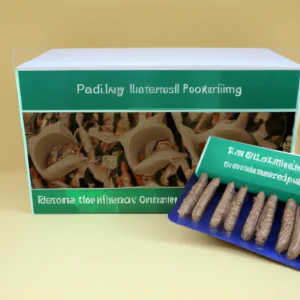Nourish Your Gut: Fiber’s Key Benefits Revealed
Understanding the Role of Fiber in Digestive Health: Types and Sources
Fiber supports digestive health by regulating bowel movements and enhancing overall wellness. This blog explores fiber types, sources, and practical tips to increase your intake.
What is Fiber?
Fiber is an indigestible carbohydrate. Unlike other carbohydrates that break down into sugars, fiber remains intact as it moves through your digestive system. This quality makes fiber vital for a healthy diet. You can classify fiber into two types: soluble and insoluble, each promoting digestive health differently.
Soluble Fiber
Soluble fiber dissolves in water, creating a gel-like substance in your digestive tract. This slows digestion and regulates blood sugar levels by moderating glucose absorption. Foods rich in soluble fiber include:
– **Oats**: These lower cholesterol levels effectively.
– **Beans and Lentils**: Add these versatile ingredients to soups, salads, and stews.
– **Fruits**: Apples, oranges, and berries offer delicious soluble fiber.
Incorporating these foods improves your digestive health while providing benefits like cholesterol reduction and increased satiety.
Insoluble Fiber
Insoluble fiber does not dissolve in water. It adds bulk to stool and promotes efficient food movement through the digestive system. Good sources of insoluble fiber include:
– **Whole Grains**: Choose brown rice, quinoa, and whole wheat bread.
– **Nuts and Seeds**: These offer fiber, healthy fats, and protein.
– **Vegetables**: Dark leafy greens, carrots, and broccoli provide fiber and essential nutrients.
– **Wheat Bran**: Add this fiber powerhouse to cereals or baked goods.
Including these foods prevents constipation and promotes regular bowel movements, contributing to a healthier digestive system.
Tips for Increasing Fiber Intake
Boosting fiber in your diet can be easy. Use these practical tips to increase your intake:
1. **Start Gradually**: If you’re not used to fiber, increase your intake slowly to avoid gas and bloating. Aim for an additional 5 grams daily until you reach the recommended intake.
2. **Choose Whole Grains**: Select whole grain bread, pasta, and cereals for higher fiber content. Look for products listing “whole grain” as the first ingredient.
3. **Add Fruits and Vegetables**: Fill half your plate with these nutritious options.
Conclusion
Fiber plays a vital role in digestive health. Understanding its types and sources can help you make healthier dietary choices.
Below are related products based on this post:
FAQ
What are the two types of fiber and how do they benefit digestive health?
The two types of fiber are soluble and insoluble. Soluble fiber dissolves in water and helps regulate blood sugar levels while promoting satiety. It is found in foods like oats, beans, and certain fruits. Insoluble fiber does not dissolve in water; it adds bulk to stool and aids in moving food through the digestive system. This type is present in whole grains, nuts, seeds, and vegetables, helping to prevent constipation and support regular bowel movements.
What are some practical tips for increasing fiber intake?
To increase your fiber intake, start gradually by adding about 5 grams per day to avoid digestive discomfort. Choose whole grain products as they have a higher fiber content, and aim to fill half of your plate with fruits and vegetables at each meal. Incorporating a variety of fiber-rich foods will help you meet the recommended intake more easily.
What foods are high in soluble and insoluble fiber?
Foods high in soluble fiber include oats, beans, lentils, and various fruits like apples and berries. For insoluble fiber, you can include whole grains such as brown rice and whole wheat bread, as well as nuts, seeds, and vegetables like dark leafy greens, carrots, and broccoli. Including a mix of these















Post Comment